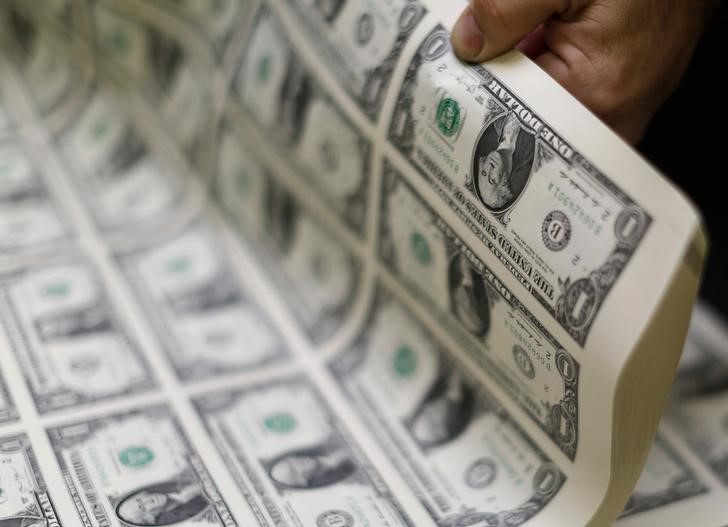Trump meets Zelenskiy, says Putin wants war to end, mulls trilateral talks
* Graphic: World FX rates in 2020 https://tmsnrt.rs/2RBWI5E
(New throughout)
By Kate Duguid
NEW YORK, April 15 (Reuters) - Investors fled riskier assets
for safe-havens like the American dollar on Wednesday after U.S.
data underlined fears that damage to the global economy from the
coronavirus outbreak will be long and protracted.
The U.S. dollar index =USD , which had fallen in the four
previous trading days, rose as high as 99.98, but returned some
of those gains, last trading up 0.71%. U.S. Treasury bonds,
another traditional safe-haven, saw yields fall as demand for
the debt drove prices higher.
Against other traditional safe-havens the dollar gained
modestly: It was last up 0.31% against the Japanese yen JPY=
and 0.47% stronger against the Swiss franc CHF= .
The Commerce Department on Wednesday reported that U.S.
retail sales suffered a record drop in March as mandatory
business closures to control the spread of the novel coronavirus
outbreak depressed demand for a range of goods, setting up
consumer spending for its worst decline in decades. The New York Federal Reserve also reported on Wednesday that
its Empire State manufacturing index, which tracks activity in
the sector for New York State, fell to an all-time low that was
more than double the consensus Wall Street forecast.
"The IMF's overnight report, which downgraded global growth
more than expected, along with the record downturn in U.S.
retail sales, and the huge drop in U.S. industrial production,
all combined to see a rush into the safe-haven USD," wrote
analysts at Action Economics.
The global economy is expected to shrink by 3% during 2020,
a collapse in activity that will mark its steepest fall since
the Great Depression of the 1930s, the International Monetary
Fund said on Tuesday. A fall in oil prices on expectations that production cuts by
OPEC may not be enough to support crude during a global demand
crunch also weakened riskier currencies, with the oil-exposed
Norwegian crown and Canadian dollar down sharply. O/R
The Norwegian crown NOK= fell almost 2% against the U.S.
dollar, while the Canadian dollar CAD= was down more than 1.5%
versus the greenback.
The Bank of Canada on Wednesday said the coronavirus
outbreak was set to trigger the biggest ever near-term Canadian
slump. The central bank held interest rates steady at 0.25% as
expected, added provincial and corporate bonds to its
quantitative easing program, and said it "stands ready to adjust
the scale or duration of its programs if necessary".
<^^^^^^^^^^^^^^^^^^^^^^^^^^^^^^^^^^^^^^^^^^^^^^^^^^^^^^^^^^^
FX positions IMAGE https://reut.rs/2VxUB6i
^^^^^^^^^^^^^^^^^^^^^^^^^^^^^^^^^^^^^^^^^^^^^^^^^^^^^^^^^^^>
